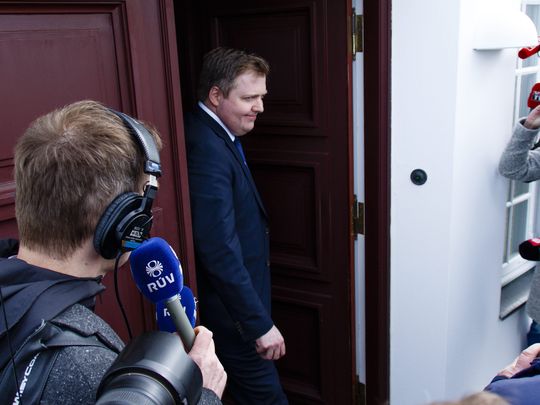President Putin denies “any element of corruption” over the Panama Papers leaks, and says his opponents are trying to destabilise Russia.
Source: Panama Papers: Putin rejects corruption allegations – BBC News
What are the Panama Papers?
The Panama Papers are documents which were leaked from Mossack Fonseca, a Panama-based law firm which, according to its website, offers “comprehensive legal and trust services.” The website goes on to say that the firm offers “research, advice and services for the following jurisdictions: Belize, The Netherlands, Costa Rica, United Kingdom, Malta, Hong Kong, Cyprus, British Virgin Islands, Bahamas, Panama, British Anguilla, Seychelles, Samoa, Nevada, and Wyoming (USA).” Some of those jurisdictions have been labeled tax havens – including Panama
The number of documents involved in the leak is staggering: 11.5 million confidential documents, constituting financial and legal records. It is thought to be one of the largest such leaks ever: even bigger than the info shared by Edward Snowden.
The documents take up 2.6 terabytes in computer storage. For context, 1 terabyte of data could be stored on about 1400 CD-ROMs or 220 DVDs.
It would seem that leaked documents detailing the enrichment of Russian President Vladimir Putin’s associates through offshore loans would cause as much a sensation in Russia as the Panama Papers’ other explosive revelations did in the West.

After all, the leaks — which show how politicians from 50 countries hid their wealth — rattled the global community so much that they forced Iceland’s Prime Minister Sigmundur David Gunnlaugsson to step aside.
Not only is that next to impossible in Russia, but the allegations themselves are hardly causing a stir. The reason? Russians are so inured to corruption as a regular feature of political life that one more document leak will neither change public opinion nor pose any real threat to Putin.
Kremlin spokesman Dmitry Peskov said that the Panama Papers revealed “nothing new” and, in a larger sense, he’s on to something as far as Russia is concerned.
“After Panama, nothing will change because no one got scared,” commentator Alexander Baunov wrote on the Colta.ru news site. “Peskov… came out [in advance] and said: don’t miss this, soon someone will say bad things about us. That is a sign that they are not concerned about this. Instead, they are concerned about being isolated from the outside world. That is what Putin is afraid of, not losing popularity at home.”
In 2007, multiple reports alleged that Putin had secretly amassed a fortune of some $40 billion squirreled away in offshore accounts. In 2009, businessman turned whistleblower Sergei Kolesnikov claimed evidence that government funds were being siphoned off to build a $1 billion palace for Putin on the Black Sea. While the Kremlin officially denied Putin had anything to do with the property, the documented presence of Kremlin security on the scene and the confirmed fact that the Kremlin had contracted the construction of the residence suggested otherwise.
Despite a public outcry by members of Russia’s marginalized opposition, no investigation was launched and, perhaps more important, the outrage did not spread to the population at large.
The alleged scheme to finance the palace was similar to the schemes outlined recently in the Panama Papers — businesses and banks would lend money to offshore companies controlled by Putin’s friends. While the 2009 allegations were far less detailed, they revealed what most Russians already know as a fact of life: that those in power use their power to enrich themselves.
A December public opinion poll conducted by the Levada Center showed that 82 percent of Russians see corruption in the upper echelons of the government as a typical phenomenon. This was after a massive investigation by anti-corruption crusader Alexei Navalny claimed that prosecutor-general Yuri Chaika had family links to a criminal organization. The claims, just as countless ones before them, were never officially investigated.
Nor do Russians believe that corruption can really be countered, because it is such an integral part of governance. Another recent poll by the Levada Center illustrated just that: 44 percent of Russians, more than any other category, believe that Putin will try to fight corruption but will not succeed. Another 19 percent said that Putin can’t fight corruption because he himself depends on corrupt officials.
If in the West corruption sees big money buying power, then in Russia power itself is the source of big money. The fact that palaces, cars and $500,000 watches like those worn by Kremlin spokesman Peskov are just perks of the job is something that average citizens have long ago internalized. Another revelation detailing schemes of how, exactly, money flows from power won’t change that.

